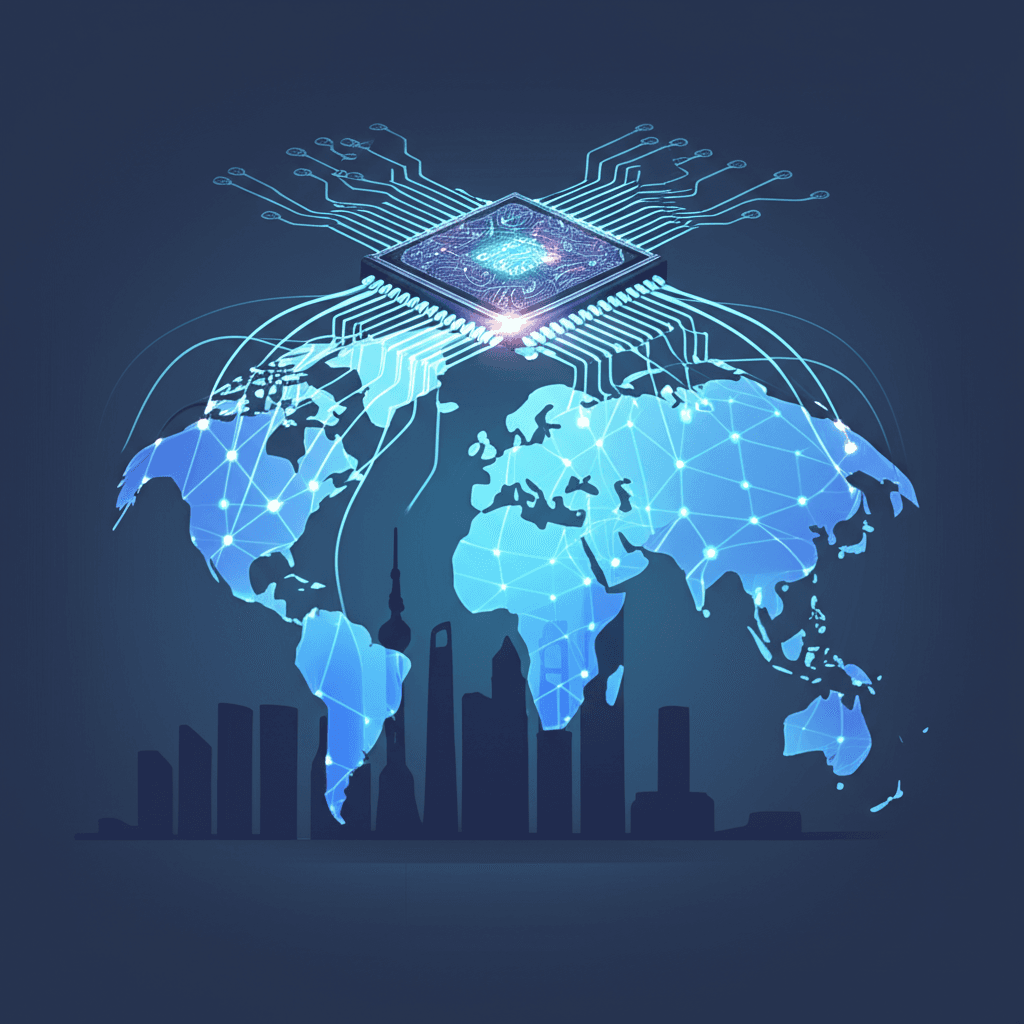China proposes Shanghai-based global AI regulator, challenging US tech dominance.
China proposes a Shanghai-based AI organization, intensifying geopolitical competition and offering an alternative vision for global governance.
July 26, 2025

In a significant move that underscores the escalating geopolitical competition over artificial intelligence, China has proposed the establishment of a new international organization dedicated to the global governance of AI, with its headquarters to be based in Shanghai.[1][2][3] The announcement, made at the annual World Artificial Intelligence Conference in Shanghai, signals Beijing's ambition to play a central role in shaping the rules and norms that will govern this transformative technology, positioning itself as a key alternative to the United States.[1][4] This initiative is part of a broader strategy by China to become a world leader in AI by 2030 and to champion a vision of global tech governance that emphasizes cooperation and the interests of developing nations, often referred to as the Global South.[5][1] The proposal has been met with a mixture of interest and skepticism, highlighting the deep divisions and competing philosophies that characterize the international race for AI dominance.[6][7]
At the heart of China's proposal is the "Global AI Governance Initiative," first introduced by President Xi Jinping in 2023.[5] This initiative advocates for a "people-centered approach" to AI, stressing principles of mutual respect, equality, and the promotion of AI for the benefit of all humanity.[8] Chinese officials have emphasized the need for a global governance framework with broad consensus to address the fragmented nature of current regulatory efforts.[1][9][4] They have expressed a willingness to share China's developmental experiences and AI products, particularly with developing countries, arguing that AI should not become the "exclusive game" of a few powerful nations and companies.[1][4][10] This rhetoric directly challenges the approach of the United States, which has implemented export controls on advanced AI chips and technology to China, citing national security concerns.[11][10][12]
The choice of Shanghai as the proposed headquarters for this new AI body is highly strategic. The city has been designated by the Chinese government as a key hub for scientific and technological innovation, with a particular focus on AI.[13][14] Shanghai is already home to a burgeoning AI industry, with a complete industry chain from software models to intelligent terminals, and hosts a significant number of AI-focused companies and research institutions.[14][15] The city's government has released its own "Shanghai Declaration on Global AI Governance," which emphasizes promoting AI technologies while ensuring safety and inclusive global cooperation.[5][14] By positioning Shanghai at the center of global AI governance, China aims to leverage its significant domestic advancements and investments in the field to project its influence on the international stage.
The implications of a China-led international AI regulator are significant and multifaceted. For the AI industry, it could lead to a bifurcation of global standards, with one set influenced by China's state-led, top-down approach and another shaped by the more market-driven, innovation-focused philosophy of the United States.[6][16] The European Union has adopted a third path, focusing on a risk-based regulatory framework with its comprehensive AI Act.[17][18] This divergence in regulatory approaches reflects fundamental differences in political and economic ideologies.[16] A China-led body could also provide a platform for countries in the Global South to have a greater voice in AI governance, potentially reshaping the geopolitical landscape of technology.[19][8] However, concerns remain in the West regarding China's approach to AI, particularly in relation to state surveillance, censorship, and the potential for authoritarian applications of the technology.[20][21]
In conclusion, China's proposal for a new global AI regulator based in Shanghai represents a bold step in its quest for technological leadership and influence in global governance. The initiative challenges the existing U.S.-led order in technology and offers an alternative vision for how artificial intelligence should be managed on a global scale. The success and impact of this proposed organization will depend on its ability to attract broad international support and navigate the complex geopolitical tensions that currently define the development of artificial intelligence. The world is now faced with competing visions for the future of AI regulation, a contest that will undoubtedly shape the trajectory of this powerful technology for years to come.
Sources
[3]
[4]
[6]
[11]
[12]
[14]
[15]
[16]
[18]
[19]
[21]